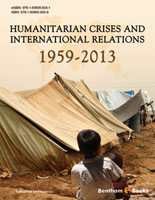Introduction
Based on six years of extended ethnography in multiple agricultural areas of the Eastern United States, Down Country Lanes, Behind Abandoned Houses is a monograph which explores the lives of migrant and seasonal farm workers. The six-year study secured multi-setting field data in primary, secondary and casual sites, and audio-taped narrative life stories from men and women who harvest and perform the related tasks that help to make the many foods which we enjoy in abundance. The study presented in this book elaborates vignettes from field observations with a focus on workers who use drugs and alcohol, and is complemented by formal (narrative life stories) and informal interviews. The author explores diverse field data that reveal the hardships, exclusion and social adversities that migrant farm workers experience many times more often than any other social group with considerable susceptibility to drug / alcohol use.
Down Country Lanes, Behind Abandoned Houses
gives readers a perspective about farm workers’ social vulnerability across multiple agricultural areas, while comparing willful neglect and social non-existence experienced by farm workers to a gray zone of contemporary horrors in the way that these men and women have been viewed and treated over many decades. The monograph is an invaluable reference for the study of social problems, substance abuse, trans-national migratory experiences and field methods in sociology. The book also serves as a contemporary handbook on the anthropology of American agricultural labor.




